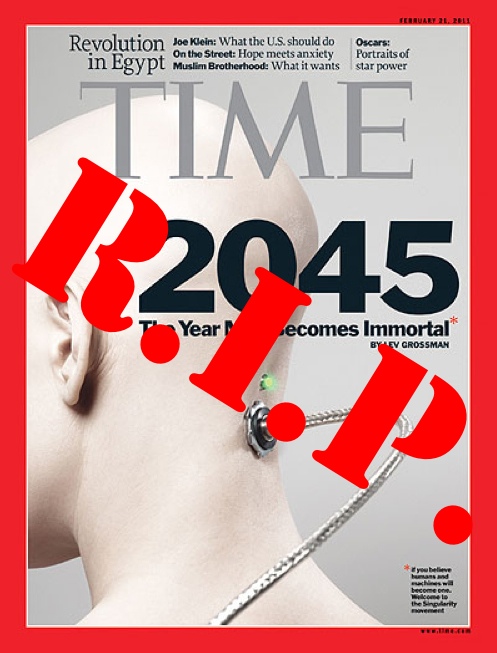By Hiring Kurzweil, Google Just Killed the Singularity
Late last Friday, Google announced a jaw-dropping hire: Ray Kurzweil will join the company as a Director of Engineering. Has the world’s brainiest tech company suddenly bought into Kurzweil’s “rapture of the nerds” b.s. “technological singularity” ideas? Hardly. They’ve just signed The Singularity’s death warrant by putting its chief proselytizer to work doing what he does best: inventing better machines for the real world, not writing science fiction. For this, Larry Page should get some kind of medal.

Ray Kurzweil is a genius inventor. His contributions to machine learning (including optical character recognition and speech synthesis) have literally changed the world–and helped make some of Google’s own computational feats possible. But as an author and “futurist,” Kurzweil is more like a sci-fi Deepak Chopra, spinning inspirational techno-fantasies about immortality, artificial intelligence, and consciousness that drive scientists and engineers batty while driving his speaking fees ever upward. Even Douglas Hofstadter–another technical genius unafraid of grappling with the big questions of mind and machines in the popular press–literally compared Kurzweil’s futurist thinking to “dog excrement.”
Google’s army of nerds undoubtedly finds concepts like The Singularity exhilarating. But when Google sets its hive mind on something Singularity-esque like self-driving cars, it attacks the problem by researching, testing, and building–not by arguing how many artificially intelligent angels might be programmed to dance on the head of a pin. Data, engineering, and repeatable results are Google’s religion. If Kurzweil wants to put his ideas into action there, he’ll have no choice but to get real about them.
I have no doubt that he will. And the results, given Kurzweil’s powers as an engineer and inventor, may just change the world all over again. So good riddance, Singularity. Google–and a newly purpose-driven Kurzweil–can take it from here.
Keep Reading
Most Popular
Large language models can do jaw-dropping things. But nobody knows exactly why.
And that's a problem. Figuring it out is one of the biggest scientific puzzles of our time and a crucial step towards controlling more powerful future models.
The problem with plug-in hybrids? Their drivers.
Plug-in hybrids are often sold as a transition to EVs, but new data from Europe shows we’re still underestimating the emissions they produce.
Google DeepMind’s new generative model makes Super Mario–like games from scratch
Genie learns how to control games by watching hours and hours of video. It could help train next-gen robots too.
How scientists traced a mysterious covid case back to six toilets
When wastewater surveillance turns into a hunt for a single infected individual, the ethics get tricky.
Stay connected
Get the latest updates from
MIT Technology Review
Discover special offers, top stories, upcoming events, and more.